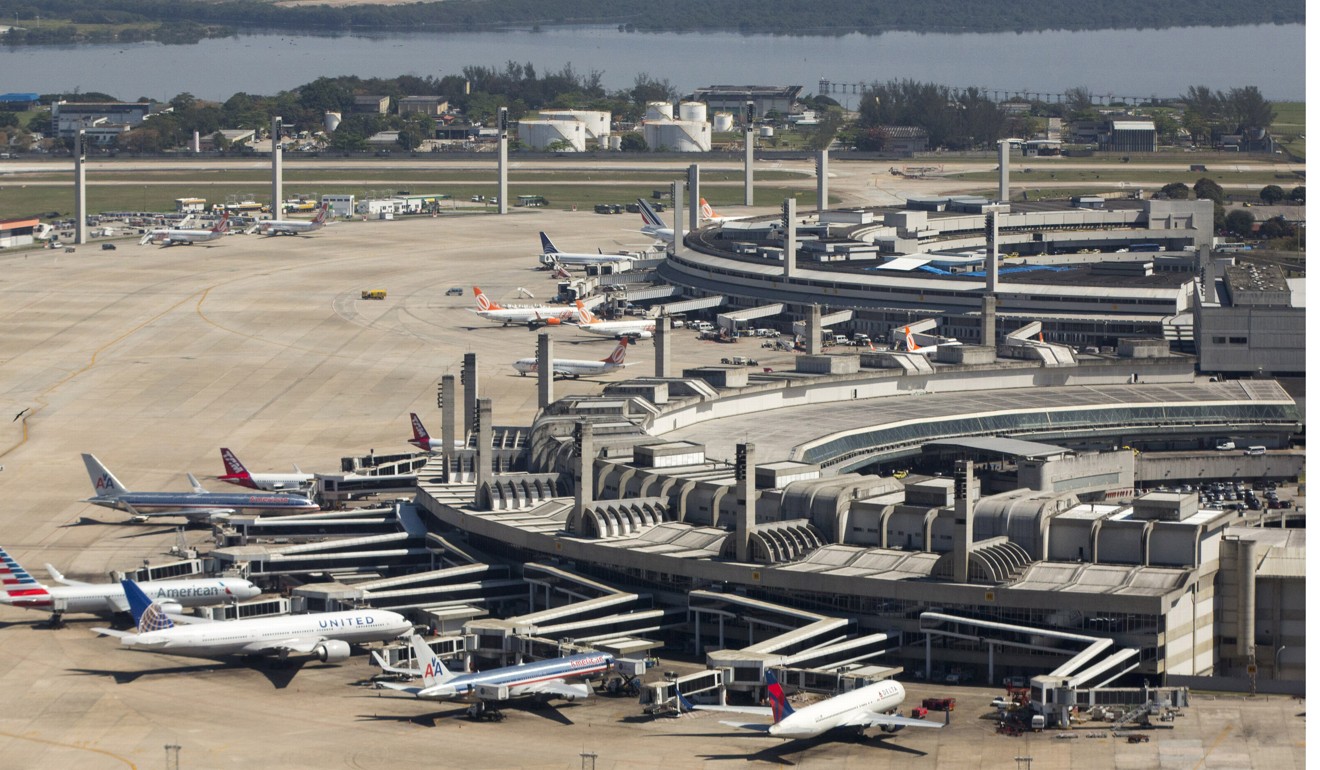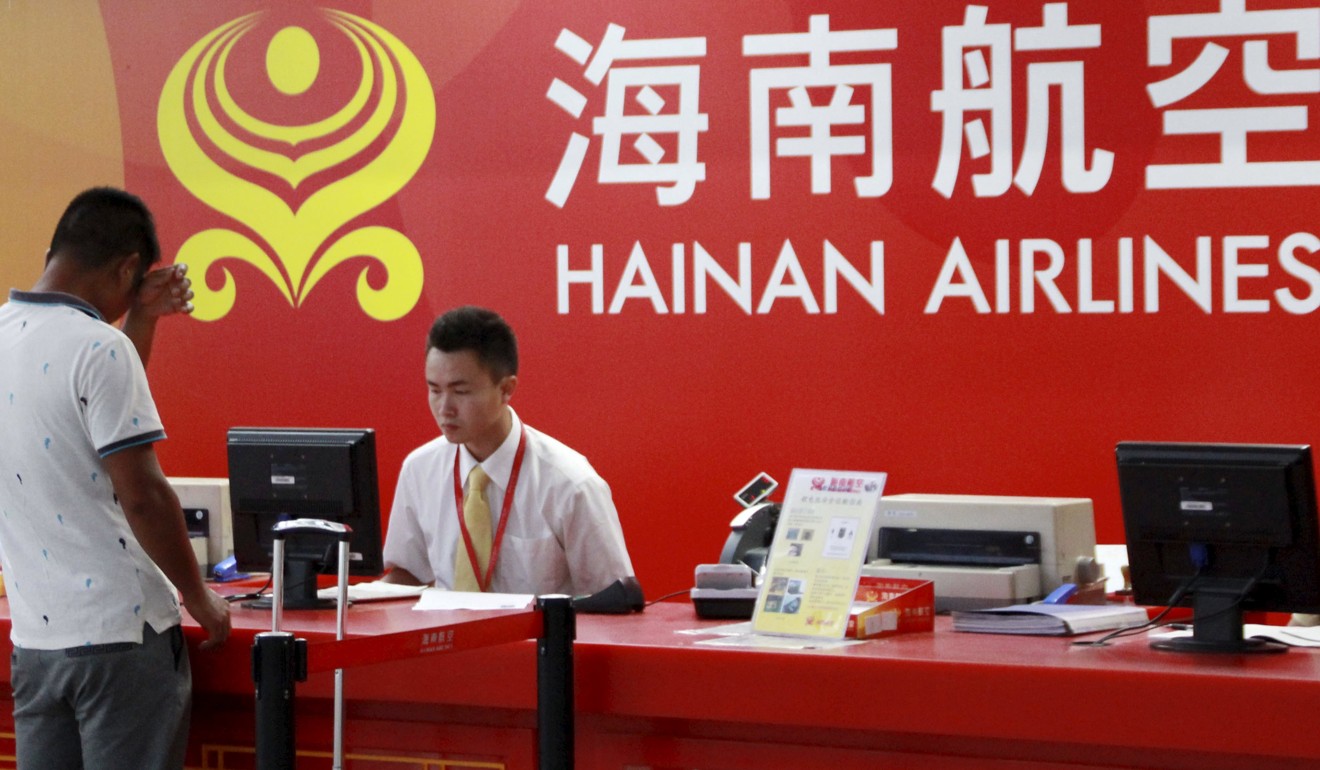
Undaunted, HNA says Beijing’s probe has not dented its overseas deal making interest
The aviation-to-financial conglomerate says it will continue to invest in related businesses
HNA Group, one of the most acquisitive Chinese conglomerates that has been under tighter credit scrutiny by state banks as part of Beijing’s effort to control the nation’s financial risks, will continue to seek outbound deals, according to its vice-chairman.
“We will keep investing in related businesses even we see some policy issues, especially in projects along [regions covered by] the Belt and Road Initiative,” Tan Xiangdong told a panel discussion at the Forbes Global CEO conference on Tuesday.
Tan’s remarks were in response to Forbes Media editor-at-large Rich Karlgaard’s question on how Westerners should read into the reports that President Xi Jinping wants the nation’s investment capital to stay in China rather than going abroad.
Chairing the National Financial Work Conference in July, Xi said the central bank and the banking, securities and insurance regulators must anticipate and tackle risks that could lead to financial crises.
The People’s Bank of China subsequently said it would put “systemic risk” prevention and control higher up on its agenda, while the China Banking Regulatory Commission said it had sent warning letters to all state banks, asking them to check the risk level of all loans to global deal makers, including aviation-to-financial services group HNA, Dalian Wanda, Fosun International and Anbang Insurance.
We will keep investing in related businesses even we see some policy issues, especially in projects along [regions covered by] the Belt and Road Initiative
The intensified scrutiny has forced Chinese firms to review investment strategies to align with national policies, including shifting to a bigger focus on the Belt and Road plan.
HNA has recently invested in an airport in Brazil and the second biggest airport in Frankfurt.
“On these kinds of investment opportunities, we are still paying a lot of attention and they are still very doable,” Tan said, adding that HNA has signed several investment deals in the United States.
HNA has bought 30 per cent of the concession to operate Rio de Janeiro’s Galeao international airport for an undisclosed sum, reported Reuters early this month, quoting the Brazilian Transport Minister Mauricio Quintella as saying.
In March this year, HNA said its Hainan Airlines unit struck a deal to buy 82.5 per cent of Frankfurt-Hahn Airport – located about 120 kilometres from Frankfurt – for €15 million (HK$138.43 million).

It is one of the deals pending approval by the Committee on Foreign Investments in the United States (CFIUS), which together with Trump had earlier this month blocked Chinese-owned Canyon Bridge Fund’s acquisition of Lattice Semiconductor on national security concerns.
Despite HNA’s overseas acquisition spree in recent years, Tan said its current debt to asset ratio had been at its lowest in the past seven years, and that the group recorded a 45 per cent rise in profit and 190 per cent revenue jump in the first half of this year, thanks to acquisitions and business growth.
At the panel discussion on Tuesday, Tan’s fellow private equity panellists warned that high debt levels, elevated valuations in equity markets, unreasonably low yields in high-risk bonds, and the disruption of traditional industries by technology start-ups have created big risks for investors.

Another indication came from European companies being able to raise funds by issuing high-risk bonds at yields that are lower than the dividend yield of member stocks of the European stock index, Euro Stoxx 50.
“It doesn’t make sense,” Wintrob said, but added that “it will [one day] create a lot of interesting opportunities globally for people who haven’t forgotten fundamentals.”
Baring Private Equity Asia chief executive Jean Salata said highly debt-leveraged transactions around the world would be exposed to the impact of higher interest rates from the impending unwinding of central banks’ balance sheets.
“The credit tightening could create a domino effect through a self-fulfilling effect,” he said.
He also said certain “predatory capital investments” and business models that subsidise consumers by start-up technology firms had “destroyed” profit margins and resulted in “treacherous landscapes” in some industries.
Value Partners Group co-chief investment officer Cheah Cheng Hye said fund managers like himself had been under pressure from clients to “go along” with a trend to invest in “hot” technology stocks that are “not very profitable”, because “the world has too much surplus savings and insufficient investment opportunities”.

